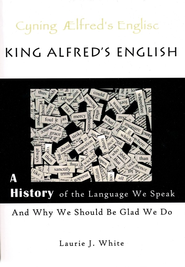Perhaps you’ve heard about young Brittany Maynard. She was 29, pretty, vivacious, married, a former teacher, and terminally ill with a very large cancerous brain tumor.
Read MoreHis Hands Were Bigger Than Shovels: Hyperbole
Hyperbole is a lot of fun to read and to write.
But what is it?
Hyperbole (hi PER bo lee) is exaggeration, as in “He was as hefty as a whale” or “Her whining voice so electrified the air that it knocked migrating geese off their course.” To read examples of this figure of speech, click here.
Just so you know, this figure of speech is also called a writer’s device and a literary device. And, just so you also know, “writer’s device” and “literary device” mean the same thing. The first is from the writer’s perspective; the latter is from the perspective of a student studying literature.
Here’s an example of hyperbole from Lee Child’s Personal in which he describes one of the bad guys:
Read MoreWriting Is Better When . . .
Writing is hard. My students tell me this, and I believe them.
Writing makes their hands hurt. They don’t know what to write or how to write it. They have trouble coming up with topics. They’ll write if someone gives them a topic they are interested in. Or if someone gives them a topic, they don’t want to write.
Can you identify with any of these? If so, let’s make it easier on you.
Writing tip: When you are writing, be aware of your environment.
What do I mean by that? I mean be a detective and find out where you like to write and what you like around you when you write. Do you enjoy being in a room full of people, your favorite pet, or solid quiet when you write? Would you rather be at a desk . . . or slouched in the beanbag in the corner?
Read MoreNever Do the Following
Rules, rules, rules! You find them everywhere.
I even found some in a guide book to a Florida vacation area.
But these weren’t strictly rules. They were more like advice. In Emerald Coast Guide, I found all sorts of advice and things to avoid.
Quirky Beach Rules
For instance, in their “NEVER do the following” column, they mention some obvious things and some funny things:
Read MoreWrite a Story from an Animal’s Perspective
How do you write a story about Alaska before people arrived? You make animals the main characters, which is exactly what James A. Michener does in Alaska.
Michener creates Matriarch, a mammoth that is old enough to be the grandmother of many other mammoths. Through her eyes, we see the landscape and experience the early troubles of the area now known as Alaska.
An Alaskan Matriarch
Here’s a passage from Alaska in which Matriarch first encounters . . . well, I think you’ll figure out what’s going on here:
Read MoreCelebrate Hispanic Heritage Month with this Family Writing Prompt
Let’s celebrate Hispanic Heritage Month by highlighting a short story by Colombian-born Gabriel García Márquez.
Many stories can be put into one of two categories when talking about how the ball gets rolling:
Read MoreWhat Will Your Character Find in a Secret Room?
Secret rooms in movies and books promise excitement. How does one find the room? How does one enter? What could be hidden in this mysterious vault?
The Scarlet Letter by Nathaniel Hawthorne is introduced to readers as being the result of an amazing find, a secret cache tucked away in the dusty, forgotten second floor of the custom house where Hawthorne worked for a while.
Here’s how he creates excitement for his narrator’s find and, therefore, the story:
Read MoreFire Prevention Day—Narrowing Down a SubjectTopic
Note: This is part one of the Intro to Writing series. Find links to the other tutorials here.
What do you do when your teacher gives you a subject to write about, but that subject is too broad?
For instance, what if your teacher says, “Write about natural disasters”? Right off the bat, you know you are in trouble. That subject is too large; there are too many possibilities. It would take a few books to cover everything, and your essay is due in two days.
Read MoreWe’re All the Same, and We’re All Different
How are humans the same? How are we different from each other?
Explore this subject with your students and children as they dig into humanity and learn one method of comparing and contrasting as well.
This prompt comes in the form of a short video. I smiled and laughed through it but found something deeply sad in it as well. How will your students react to the silent messages in it?
Read MoreBecome a Poet
Has your sports team ever lost a game? And did you write about it in a poem?
You didn’t?
Well, Ernest Thayer did in the now-famous poem “Casey at the Bat.” You can read the history of the poem and the poem itself here.
October 2 is National Poetry Day, and recently the theme was “Remembering,” in which amateur and famous poets write to remember a special moment or a meaningful time in their lives.
Read More


















